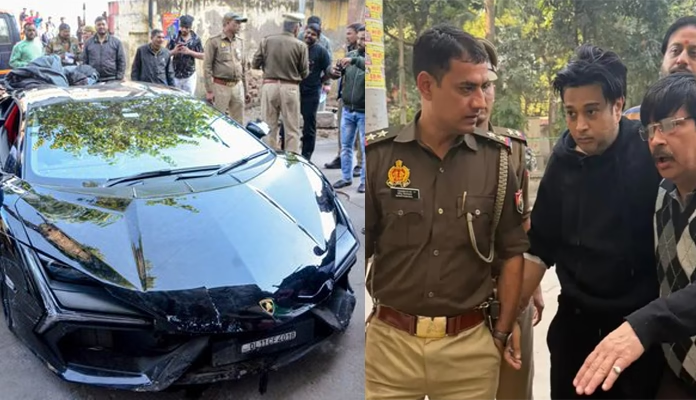
 Mukesh Kumar, known mononymously as Mukesh, was a legendary Indian playback singer born on July 22, 1923, in Delhi. He’s considered one of the most popular and acclaimed playback singers in the Hindi film industry. Mukesh’s soulful voice was discovered by his distant relative, Motilal, who took him to Mumbai for singing lessons under Pandit Jagannath Prasad. His father, Zorawar Chand Mathur, was an engineer and his mother was C hand Rani. In a family of 10, he was the sixth child. It is said that since childhood, Mukesh loved to sing and act.
Mukesh Kumar, known mononymously as Mukesh, was a legendary Indian playback singer born on July 22, 1923, in Delhi. He’s considered one of the most popular and acclaimed playback singers in the Hindi film industry. Mukesh’s soulful voice was discovered by his distant relative, Motilal, who took him to Mumbai for singing lessons under Pandit Jagannath Prasad. His father, Zorawar Chand Mathur, was an engineer and his mother was C hand Rani. In a family of 10, he was the sixth child. It is said that since childhood, Mukesh loved to sing and act.
The song that started his career of playback singing was Anil Biswas’s ‘Dil Jalta Hai to Jalna De’ (Film- Pehli Nazar, 1945). The movie coincidentally starred Motilal, who insisted that Mukesh be his voice in the film. The song was initially thought to be unsuitable for the character of Motilal and the song was removed from the film. After repeated requests, he gave away and agreed to keep the song for one week in the film, awaiting the reactions of the audience. The song became so popular that singer KL Saigal, Mukesh’s idol, declared that he did not remember singing this song.
Here, I would like to point out that Mukesh a legendary singer acquired the sobriquet of ‘tragedy king’ in the film industry for his nasal voice that conveyed agony, sorrow and pathos like no other. What’s more, nearly five decades since his passing, emerging singers continue to breathe life into his music. Nearly five decades after his death, Mukeshchand Mathur aka Mukesh’s songs are a slow burn for Indian movie junkies. A self-taught man, Mukesh who was a non-matriculate, went to a Pashtu school and only wrote in Urdu. He could not read Hindi; all his song books were in Urdu. “But over a period of time, he managed to learn and speak English impeccably.” He had the voice that could paint a thousand shades of melancholy. One could feel the tenderness and joy in his voice ; his singing style was unparalleled.
Mukesh also acted in some films earlier such as ‘Aadab Arz’ (1943), ‘Aah’ (1953), ‘Mashuqa’ (1953), and produced‘Anuraag’ (1956), and ‘Malhar’ (1951). But he couldn’t find success, and in his own words in an interview with BBC in 1976, he remarked- ‘It is better to be a first-class singer than to be a second-class actor.’ All these films flopped at the box office. In an interview, his son, Nitin Mukesh shared that when he was in Class 5 and Rita was in Class 3, they were not allowed to attend school as Mukesh hadn’t paid their fees. The principal of the school sent them back home and Mukesh was horrified to see them.
Mukesh sang for legendary actors like Raj Kapoor, Dilip Kumar, and Manoj Kumar, and worked with music directors like Shankar-Jaikishan, Kalyanji-Anandji, and Naushad Ali. Mukesh won numerous awards, including the National Film Award for Best Male Playback Singer for his song “Kai Baar Yuhi Dekha Hai” from the film “Rajnigandha” (1973) and multiple Filmfare Awards. One of Mukesh’s last songs was ‘Kabhie kabhie mere dil mein khayal aata hai’ (‘Kabhie Kabhie,’ 1976) which fetched him a Filmfare award, posthumously. Dr. Mehta brought to life Mukesh’s timeless melodies, offering the audience a harmonious blend of nostalgia, intense emotions. All of Mukesh’s songs are his favourite because he loves his voice and Mukesh’s voice stirs something inside him. It’s not so easy to emulate Mukesh’s voice without passion and feelings. Mukesh Kumar’s legacy continues to inspire generations of music lovers, and his songs remain timeless classics in Indian cinema.
(Written by Vinod Chandrashekhar Dixit)




